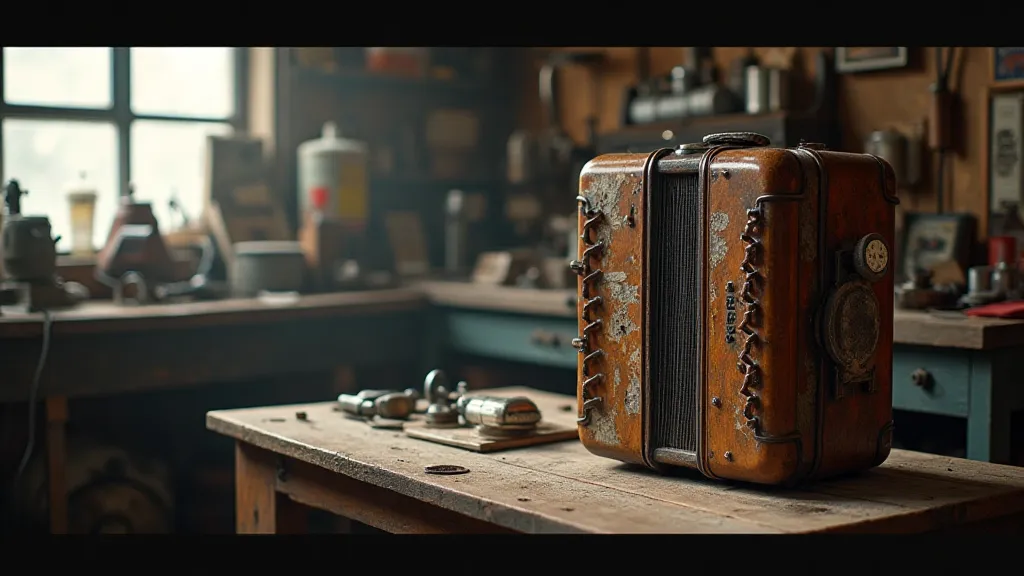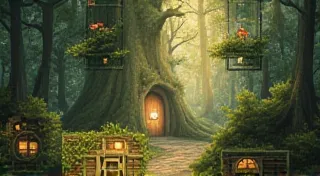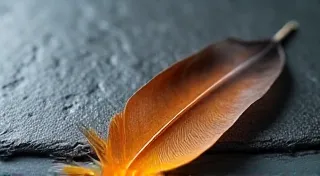Shadows of the Inkwell: Confronting the Demons of Self-Doubt
The scent of aged wood and leather always transports me. It’s the smell of my grandfather’s workshop, a space brimming with half-finished projects and the quiet hum of creation. He was a master accordion repairman, a lineage passed down through generations in our family. He's gone now, but that workshop, and the instruments within, remain potent symbols of perseverance and the beauty born of patient dedication. And I think, oddly enough, those instruments—complex machines of bellows, reeds, and keys—offer a powerful analogy for the creative process, particularly when battling the inevitable demons of self-doubt.
Because let’s be honest, every writer, every artist, every creative soul wrestles with them. That insidious voice whispering, “You’re not good enough.” The paralyzing fear of judgment. The crushing weight of imposter syndrome. It’s a universal experience, a shadow lurking in the inkwell of inspiration.
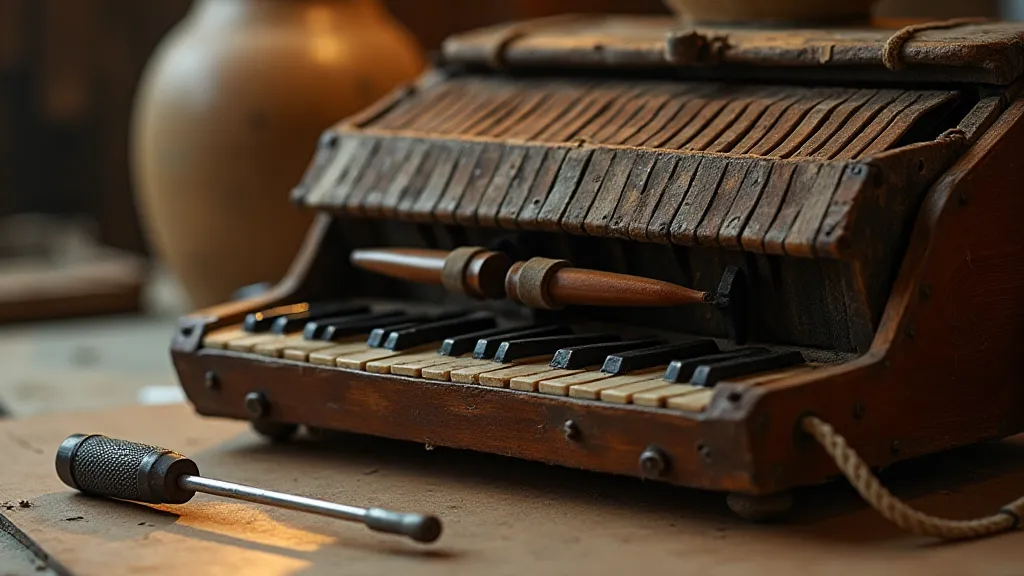
The Accordion’s Echo: A Metaphor for the Creative Journey
My grandfather rarely spoke about his craft in flowery terms. It was about mechanics, about understanding how the air flowed, how the reeds vibrated. He’d meticulously examine each bellows, replacing worn corners, reinforcing cracked frames. Restoring an accordion wasn’s about adding beauty; it was about revealing the beauty that was already there, hidden beneath years of wear and neglect. And that, I believe, mirrors the writer's journey perfectly.
We, as writers, are often our own worst critics. We tear apart our work, scrutinizing every sentence, agonizing over every word choice. We compare ourselves to authors we admire, feeling inadequate in their shadow. But just like an accordion needs consistent repair and meticulous attention, our creative voices require nurturing, protection, and honest assessment—not demolition.
Consider the historical context. Accordions, especially the diatonic varieties, were born from the folk traditions of Europe in the 19th century. They were instruments of the people - readily accessible, portable, and capable of producing a surprising breadth of emotion. Think of the joyous polkas and melancholic waltzes echoing from village squares and immigrant communities. They weren’s instruments of polished concert halls; they were instruments of shared experience, vulnerability, and authentic expression. That’s a powerful reminder for writers – our work doesn’t have to be perfect; it just needs to be honest.
Confronting the Inner Critic: Practical Strategies
So, how do we silence those self-doubts? It’s not about eradicating them entirely—those nagging voices can sometimes be a helpful form of constructive criticism—but about learning to manage them, to prevent them from hijacking your creative potential. Here are a few strategies that have helped me, inspired by the process of accordion restoration:
- Acknowledge the Doubt: Don't try to suppress it. Recognize that it's a normal part of the creative process. Say to yourself, "Okay, I'm feeling doubtful right now. That's alright." Just labeling the feeling can diminish its power.
- Focus on the Craft, Not the Outcome: When restoring an accordion, my grandfather rarely thought about the final product. He was absorbed in the task at hand—replacing a reed, tightening a screw, carefully gluing a corner. Similarly, as writers, we need to focus on the process of writing—the act of putting words on the page—rather than obsessing over publication or critical acclaim.
- Break Down the Task: A fully restored accordion can seem daunting. But it’s made up of smaller, manageable steps. Writing a novel, or even a short story, can feel overwhelming. Break it down into smaller chunks—write a scene, a paragraph, even just a sentence. Celebrate those small victories.
- Seek Feedback – Wisely: Asking for feedback can be terrifying, like showing someone the imperfect bellows you've just repaired. But it's crucial. Find trusted readers who will provide honest, constructive criticism, not just empty praise. Learn to discern valuable feedback from unhelpful negativity.
- Remember Your “Why” : Why do you write? What drives you to tell stories? Reconnecting with your original passion can be a powerful antidote to self-doubt. My grandfather repaired accordions because he believed in preserving a piece of cultural history, a connection to his ancestors. What's your connection?
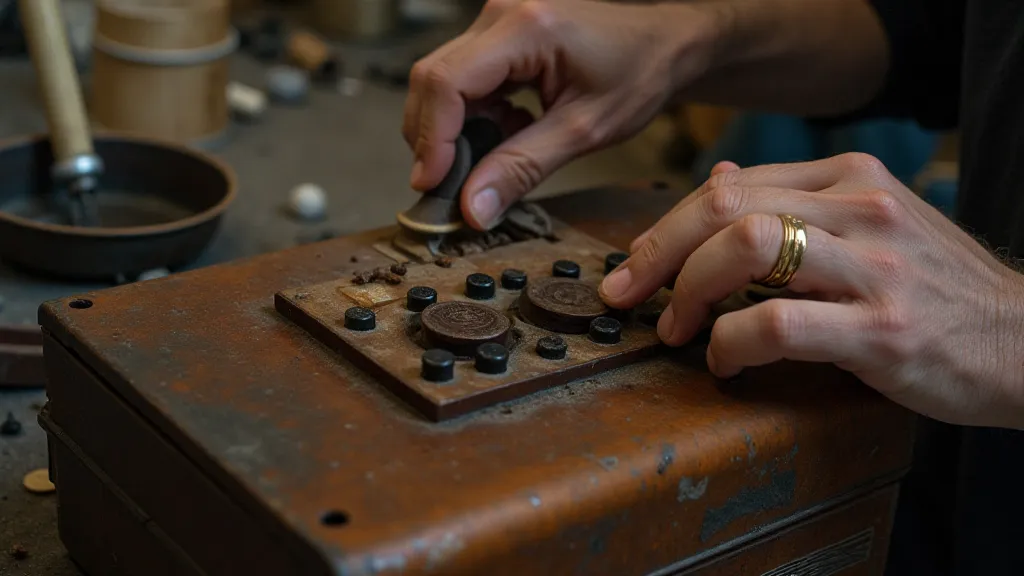
The Beauty of Imperfection
Old accordions, like old stories, bear the marks of their journeys. Scratches, dents, faded paint—they're not flaws; they're testaments to resilience, to a life well-lived. And the same is true of our writing. Perfection is an illusion. It's the imperfections—the vulnerability, the honesty, the raw emotion—that make our stories truly resonate.
There's a particular beauty in an accordion that's been lovingly restored, an instrument that sings with a unique timbre, subtly altered by years of use and careful repair. It possesses a character that a brand-new instrument simply can't replicate. Embrace your imperfections, your quirks, your unique voice. Let them shine through your writing. They’re what make you, and your stories, truly beautiful.
My grandfather often said, “A good repairman doesn’t just fix the instrument; he listens to it.” As writers, we need to listen to our stories, to the whispers of our intuition, to the echoes of our experiences. And we need to have the courage to share them, flaws and all, with the world.
The journey of a writer, like the restoration of an accordion, requires patience, dedication, and a willingness to embrace the shadows. But the rewards—the joy of creation, the connection with readers, the satisfaction of bringing a story to life—are immeasurable. So, pick up your pen, your keyboard, your instrument, and let your voice be heard. The world is waiting to hear your song.
